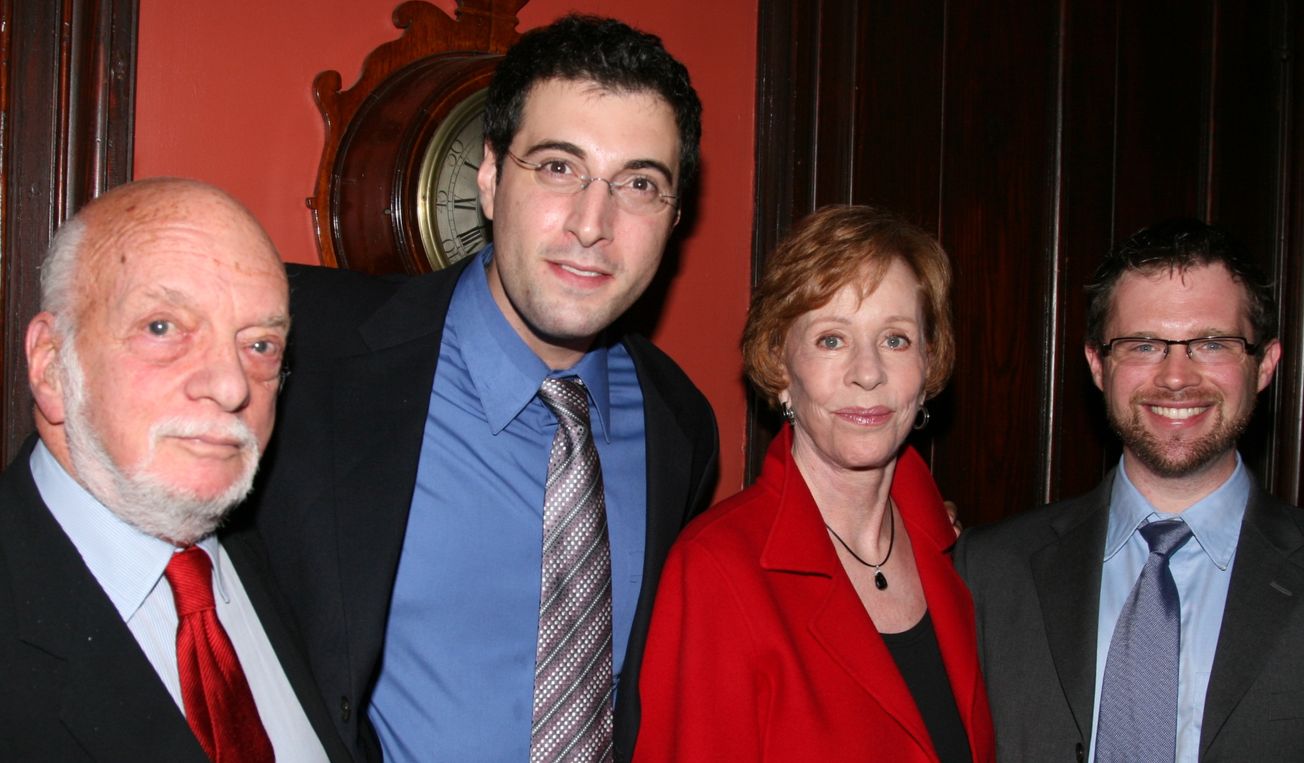Before “The Band’s Visit” won 10 Tony Awards, its lead producer, Orin Wolf, learned the tricks of the trade from some of the industry’s top names.
Wolf was part of the inaugural class of the T. Fellowship, a program created by Hal Prince in honor of his mentor, the late producer T. Edward Hambleton. The program offers fellows the ability to audit theater classes at Columbia University and gain mentorship from a panel of prominent producers, which currently includes Prince, Tom Schumacher, David Stone, Jeffrey Seller, Margo Lion and Gregory Mosher, in the hopes of bringing more creative producers into the industry.
Now the program has received an extra boost from the John Gore Organization, which announced a pledge of $100,000 over five years beginning in 2018.
The idea for the fellowship came out of discussions Prince had been having with Hambleton and his friends, Geraldine Stutz and Ed Wilson, as they surveyed the state of Broadway in the early 2000s.
“We felt that a lot of Broadway was not artistically as vital and nourishing as it had been and that commerce was ruling the roost,” Prince said.
And as Prince sees it, creative producing is one of the last defenses protecting the essence of Broadway.
“It’s all about how you feel about an art form. It’s either an art form, or it’s there to entertain and be more or less disposable,” he said.
The trio brought the idea to Columbia University, where the program was developed with funding from the Geraldine Stutz Trust and 100 individual donors, including Carol Burnett, who had been affiliated for Hambleton’s Phoenix Theater. The Broadway League joined as a donor in 2015.
The program’s first pair of fellows, Wolf and John Arthur Pinckard, began in 2007, and, after some gap years due to funding issues, the T. Fellowship has supported four others since. The fellows receive a $10,000 stipend for living expenses and a $20,000 budget to go toward a theatrical project, to be developed with the aid of the mentors.
When Wolf applied to the T. Fellowship, he had been following one of the traditional paths to producing: getting a degree in theater, interning and working at a variety of theater offices and later starting his own booking company. But he was seeking “pure mentorship” relationships to push his career a step further and help develop a play he had optioned.
“They became sounding boards for my ideas,” Wolf said of the mentors, adding that Prince later helped “The Band’s Visit” take shape.
Of course, another benefit to the fellowship is the connections that can be made by having some of the industry’s leading producers as mentors.
After Allison Bressi was chosen as the 2017-2018 T Fellow, several of the mentors helped make introductions to regional theaters she had been eyeing.
She eventually brought her production, “Songbird,” to Two River Theater thanks to an introduction outside of the group. But having the T. Fellowship brand next to her name, as well as the encouragement from the mentors, helped move the project forward, she said.
“I don’t think that I’ve ever felt as empowered to be the boss and make decisions,” Bressi said.
The mentors helped Wolf bring his play, “Groundswell” to The New Group.
Wolf himself is now co-director of the program, working alongside Steven Chaikelson, the head of the theatre management and producing program at Columbia, and advisers including Victoria Bailey, executive director of the Theatre Development Fund.
Alongside the mentorship opportunities, the academic side of the fellowship, which allows the fellow to audit courses in the management and producing program, is meant fill in technical gaps in knowledge, including budgeting and negotiating contracts.
“With Broadway getting more and more complicated, there’s more and more expertise required if you really want to be the decision maker,” Chaikelson said.
But, in the end, there’s only so much you can teach someone about how to be a producer.
“You can certainly learn the steps,” Lion said. “What you can’t learn is what’s going to be successful because no one can learn that. A lot of that has to be instinct.”
Wolf sees being a creative producer as a three-pronged job, with one clear teachable aspect: understanding the nuts and bolts of the show. The other two, having a creative impulse and being a leader, are more inherent qualities.
And the mentors themselves have varied approaches to producing, with Lion highlighting the importance of listening to the show’s writers.
“The challenge is when we have the energy and craziness to go develop something, we think we know it all, and the truth is that we don’t,” Lion said.
As Pinckard found, there are also lessons to be learned in “development purgatory,” as he ran into issues obtaining the rights to a project and worked through the process with Prince.
“It enabled me to begin to piece together how I wanted to be as a developmental producer,” Pinckard said.
He is now one of the lead producers of the off-Broadway play “Puffs,” among other projects.
The T. Fellowship itself has restarted and evolved since its beginning, but Prince is pleased with its successes so far, and with the future of the profession.
“I think when you have musicals of the nature and quality of ‘The Band’s Visit,’ of ‘Evan Hansen’ and certainly of ‘Hamilton,’ you are talking about a renewed energy and commitment to creative producing,” Prince said.


























































